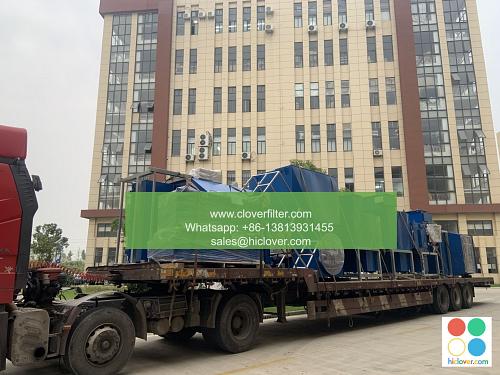The Importance of Replacing Air Filter Parts Regularly

The Importance of Replacing Air Filter Parts Regularly
Introduction
Air filters play a crucial role in maintaining a healthy and safe indoor environment. Whether it’s in a residential, commercial, or industrial setting, air filters are essential for removing pollutants, allergens, and other contaminants from the air we breathe. However, just like any mechanical component, air filters need to be replaced regularly to ensure optimal performance and filtration efficiency. In this article, we’ll explore the importance of replacing air filter parts regularly and highlight various application areas where this is particularly critical.
Why Regular Filter Replacement Matters
Air filters can become clogged with debris, dust, and other particles over time, reducing their effectiveness and potentially causing issues with indoor air quality. When air filters are not replaced regularly, they can:
- Reduce Airflow and Increase Energy Consumption: Clogged air filters can force air handling systems to work harder, leading to reduced airflow and increased energy consumption.
- Spread Contaminants and Allergens: Damaged or dirty air filters can release pollutants and allergens back into the air, exacerbating respiratory issues and other health problems.
- Damage Equipment and Systems: Clogged air filters can cause equipment failure, breakdowns, and costly repairs.
- HVAC Systems: Heating, ventilation, and air conditioning (HVAC) systems rely heavily on air filters to maintain clean air circulation. Regular filter replacement is crucial for optimal system performance, energy efficiency, and indoor air quality.
- Industrial Processes: Air filters are essential in industrial settings, such as manufacturing, construction, and food processing, where airborne contaminants can compromise product quality or pose health risks.
- Residential Properties: Homeowners should prioritize air filter replacement in their HVAC systems to maintain healthy indoor air quality, reduce energy bills, and prevent equipment damage.
- Medical Facilities: Healthcare environments require strictly controlled air quality to prevent the spread of diseases and maintain patient well-being. Regular filter replacement is crucial in these settings.
- Commercial Properties: Office buildings, schools, and other commercial spaces require effective air filtration to maintain a healthy and productive indoor environment.
- Regularly Inspect Filter Condition: Check air filter condition regularly to determine whether it needs replacement.
- Follow Manufacturer’s Recommendations: Adhere to the manufacturer’s recommended filter replacement schedule to ensure optimal performance and filtration efficiency.
- Choose the Right Filter: Select the appropriate filter type and size for your specific application, considering factors like MERV rating, filter material, and filter shape.
- Maintain Proper Filter Installation: Ensure filters are properly installed and sealed to prevent air leaks and maintain system efficiency.
Application Areas Requiring Regular Filter Replacement
Best Practices for Air Filter Replacement
Conclusion
Replacing air filter parts regularly is a crucial aspect of maintaining indoor air quality, equipment performance, and overall facility health. By following best practices and prioritizing regular filter replacement, you can reduce the risk of equipment failures, energy consumption, and health issues, while ensuring a safe and healthy indoor environment for everyone. Don’t neglect your air filters – replace them regularly to breathe easy and enjoy a healthier, more efficient indoor space.
You’ve started a conversation! What would you like to talk about? I’m here to listen and respond.

